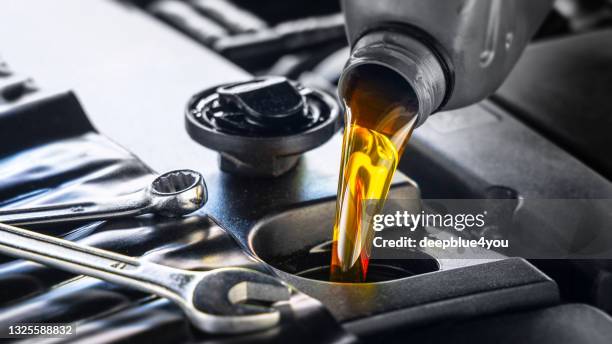Schedule for an fast Oil Change Lockhart service now.
Schedule for an fast Oil Change Lockhart service now.
Blog Article
Just How an Oil Modification Enhances Fuel Efficiency and Shields Your Automobile
Routine oil adjustments are a vital facet of vehicle maintenance that can substantially enhance fuel performance and guard engine integrity. By changing old, contaminated oil with high-grade options, friction among engine components is reduced, leading to boosted operational efficiency and gas usage.
Importance of Regular Oil Modifications
Engine oil offers as a critical lubricant, lowering friction in between relocating components and stopping excessive wear. Disregarding oil changes can lead to a host of concerns, consisting of engine getting too hot, minimized fuel effectiveness, and eventually, pricey repairs.
Furthermore, normal oil adjustments add to ideal engine performance. Fresh oil makes certain that the engine runs smoothly, enabling for far better acceleration and responsiveness. This is particularly crucial for vehicles that go through hefty usage or run in tough problems. Additionally, numerous manufacturers suggest particular periods for oil modifications, which need to be followed in order to keep service warranty insurance coverage and prevent possible invalidating.
Just How Oil Top Quality Affects Performance
Exactly how does oil high quality influence the total efficiency of an engine? The top quality of engine oil plays a critical function in maintaining optimal engine feature.
In addition, top quality oil includes additives that boost its efficiency under varying problems. These ingredients can consist of cleaning agents, which assist to tidy engine parts and stop sludge accumulation, and anti-wear agents, which safeguard critical surfaces throughout high-stress circumstances. The thickness of the oil is additionally crucial; it needs to remain secure throughout a variety of temperature levels to ensure appropriate circulation and lubrication.
Using subpar or abject oil can bring about diminished efficiency, causing enhanced engine wear and possible overheating. This can inevitably reduce the lifespan of important elements, leading to pricey fixings. Consequently, picking top quality oil is vital for maintaining engine efficiency, longevity, and integrity. Routinely examining and altering the oil according to producer specifications guarantees that the engine operates at its finest, safeguarding your financial investment in your vehicle.

Effect on Fuel Performance
High-grade engine oil helps with smoother engine operation by decreasing friction between relocating components. When the engine oil is fresh and of exceptional high quality, it maintains ideal thickness, ensuring that the oil moves correctly and gets to all required parts.
Alternatively, weakened or low-grade oil can produce enhanced friction and resistance within the engine. This not just obstructs efficiency but also forces the engine to work harder, resulting in higher gas consumption. Routine oil adjustments aid preserve the oil's stability, guaranteeing that it remains effective in lubing engine components and stopping build-up of dangerous down payments.

Avoiding Engine Deterioration
Preserving optimum engine performance is largely based on preventing damage, which can dramatically expand the great site life expectancy of the car. Normal oil modifications play an essential function in this preventive upkeep method. Engine oil acts as a lubricating substance, minimizing rubbing in between moving parts, which helps to reduce wear. In time, oil can become contaminated with dust, particles, and steel fragments, decreasing its efficiency.
When oil is not transformed consistently, it can bring about boosted friction, getting too hot, and ultimately, engine failure. Fresh oil, on the other hand, consists basics of additives that safeguard engine components from corrosion and wear, making sure smoother operation.
In enhancement to the quality of oil, adhering to the supplier's advised oil change intervals is critical. By focusing on normal oil changes, car owners can significantly minimize the risk of engine wear, enhance performance, and ultimately save on pricey fixings, hence protecting the automobile's value over time.
Signs Your Oil Requirements Changing
Normal oil modifications are not only essential for avoiding engine wear however additionally for identifying when your oil calls for substitute. Numerous indications show that it might be time for an oil adjustment, and being vigilant regarding these can help preserve your vehicle's performance.

One of the most typical indications is the oil change light on your control panel. Oil Change Lockhart. If this light brightens, it is a timely to inspect your oil levels and take into consideration an adjustment. Furthermore, if you notice a dark, abrasive texture when inspecting the oil on the dipstick, it suggests that the oil has actually become polluted and is less efficient in lubing the engine parts
Unusual engine noises, such as knocking or ticking, might additionally indicate that the oil is falling short to perform its tasks, possibly check that resulting in serious engine damages. If you spot a burning oil scent or see oil spots under your vehicle, these can show leaks or extreme intake, requiring an immediate oil change.

Final Thought
The use of high-quality, fresh oil decreases friction amongst engine elements, reducing energy loss and advertising smoother procedure. Prompt oil changes avoid the accumulation of hazardous impurities that contribute to engine wear and getting too hot.
Report this page